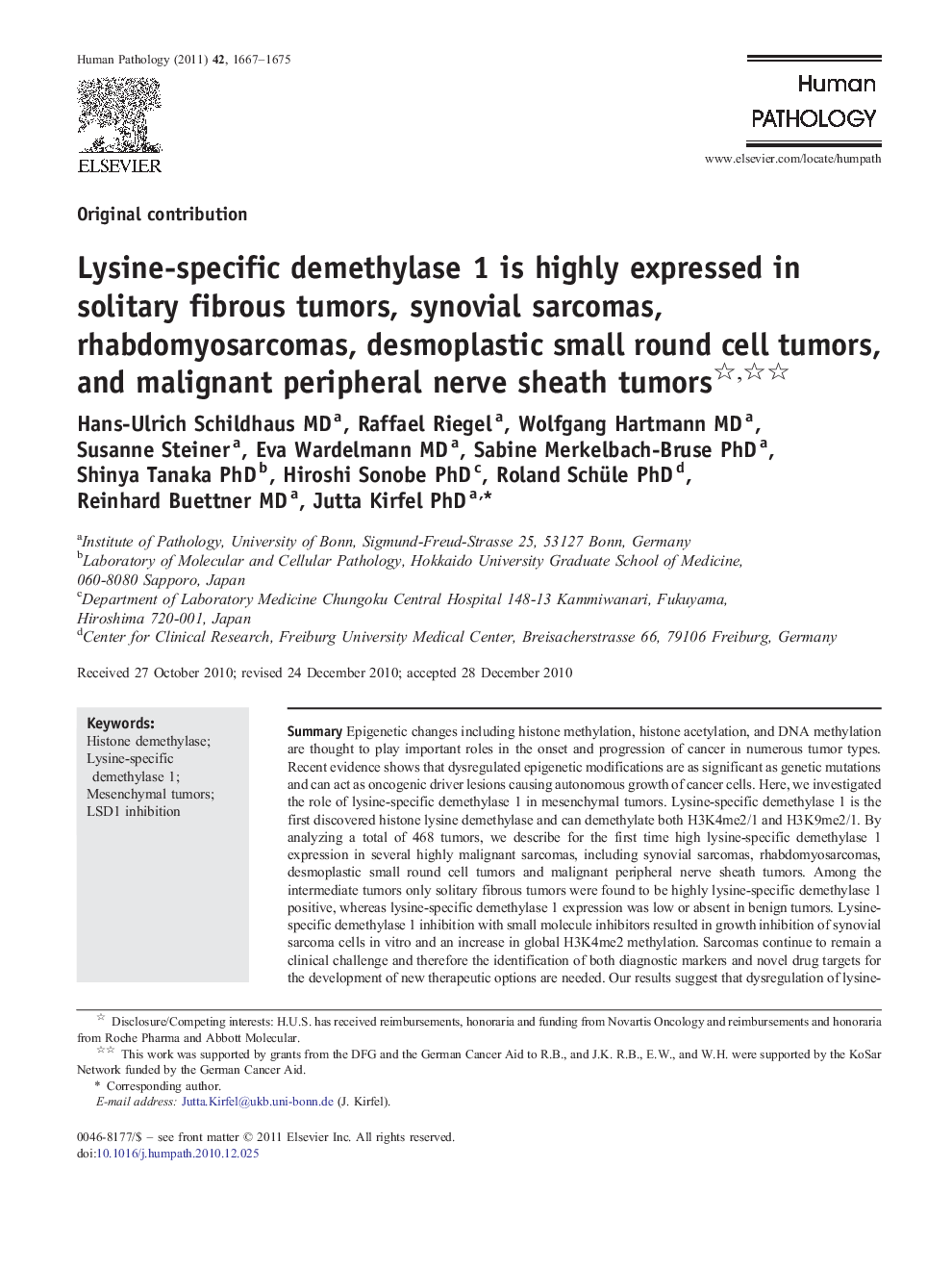| Article ID | Journal | Published Year | Pages | File Type |
|---|---|---|---|---|
| 4133676 | Human Pathology | 2011 | 9 Pages |
SummaryEpigenetic changes including histone methylation, histone acetylation, and DNA methylation are thought to play important roles in the onset and progression of cancer in numerous tumor types. Recent evidence shows that dysregulated epigenetic modifications are as significant as genetic mutations and can act as oncogenic driver lesions causing autonomous growth of cancer cells. Here, we investigated the role of lysine-specific demethylase 1 in mesenchymal tumors. Lysine-specific demethylase 1 is the first discovered histone lysine demethylase and can demethylate both H3K4me2/1 and H3K9me2/1. By analyzing a total of 468 tumors, we describe for the first time high lysine-specific demethylase 1 expression in several highly malignant sarcomas, including synovial sarcomas, rhabdomyosarcomas, desmoplastic small round cell tumors and malignant peripheral nerve sheath tumors. Among the intermediate tumors only solitary fibrous tumors were found to be highly lysine-specific demethylase 1 positive, whereas lysine-specific demethylase 1 expression was low or absent in benign tumors. Lysine-specific demethylase 1 inhibition with small molecule inhibitors resulted in growth inhibition of synovial sarcoma cells in vitro and an increase in global H3K4me2 methylation. Sarcomas continue to remain a clinical challenge and therefore the identification of both diagnostic markers and novel drug targets for the development of new therapeutic options are needed. Our results suggest that dysregulation of lysine-specific demethylase 1 is associated with highly malignant sarcomas proposing them as molecular tumor markers as well as targets for the treatment of these tumor types.
